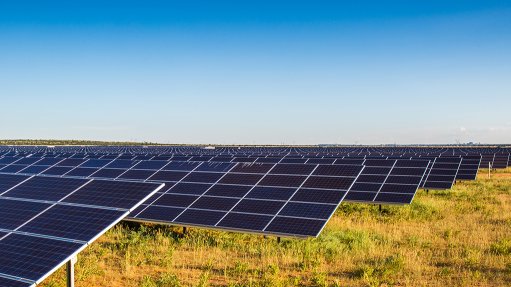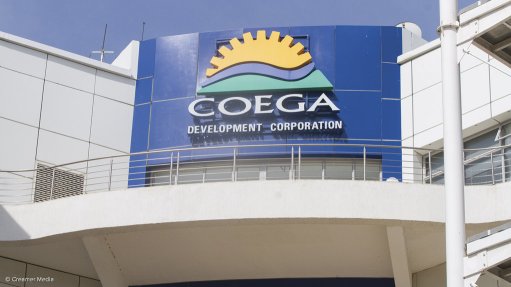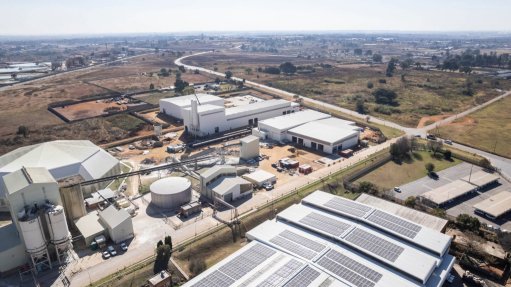Microsoft, dtic enter empowerment agreement
Microsoft and the Department of Trade, Industry and Competition (dtic) on Tuesday entered into an empowerment agreement to unlock programmes to support skills and capability development, as well as enterprise development for youth and small, medium-sized and microenterprises (SMMEs).
The agreement provides for a significant investment, estimated at R1.3-billion, by Microsoft South Africa over the next ten years, that will support SMMEs and black industrialists in navigating the changing landscape of the technology revolution.
“We are providing a platform for SMME development that is founded on technology and digital transformation, as well as market opportunity. As Microsoft, we believe that SMMEs can contribute significantly to developing a digital economy and contribute to the wider use for the growth of Africa, and that we have the technology ecosystem to really support the scope and success by collaborating with government,” said Microsoft South Africa MD Kalane Rampai.
“We aim to create positive change in the structure of our economy and unlock the potential of advanced technologies to drive an inclusive, sustainable economy. The intended outcome for this investment in South Africa is not only to ensure that citizens are part of the digital economy, but more importantly, to ensure that we meet the aim of reducing the challenges of poverty, inequality and unemployment.”
As part of the agreement and the investments, Microsoft South African is establishing a R660-million enterprise development fund, which will support SMMEs in both the technology and non-technology sectors, as well as provide for advanced skills development in AI and other emerging technologies for young South Africans.
The company will also establish a Research and Development Council to pursue critical research projects and support initiatives linked to the technology revolution in South Africa; a skills development fund, which will see the enrollment of more than 1 000 youth in intensive eight- to 12-month certified learnership programmes; and a technology fund with a focus on early startups.
Also among these initiatives is a partnership with the Localisation Support Fund to provide dedicated technology resources to support the integration of advanced technologies into South Africa’s localisation and industrialisation programme.
Trade, Industry and Competition Minister Ebrahim Patel said that this would boost small business development and strengthen the growth of black industrialists.
"The agreement we signed today will be the largest financial commitment by a single firm under the Equity Equivalent Investment Programme. To add R1.3-billion, we have breached another barrier," he said, adding that there was hardly any part of the economy and society that was not being enriched and reshaped by technology.
"We have seen with previous technological leaps that these advances hold the promise of significantly improving productivity."
Microsoft Africa president Lillian Barnard agreed, highlighting a significant opportunity, with McKinsey studies showing that, should Africa only capitalise on 10% of the global opportunity that exists in the future by AI, it will result in GDPs growing by $1.5-trillion.
In South Africa, productivity growth could triple and the pursuit of the new technologies could add a percentage point to the country’s real GDP.
“That should excite all of us. That is why I want us, across the continent and in South Africa, to really embrace this new technology, and also find a way to make sure that it makes sense for us, [to consider] what our approach will be and [consider] what are some of the regulations we are going to put in place, because I do not think that we have time to ponder anymore. It is about making those plans with intentionality as to how, because technology should show up for us in our country as well as the continent.”
The technology is actually a driver of economic growth, a talent magnet, a job creator and a significant source of exports.
“We have to be at the forefront of this,” she concluded.
Article Enquiry
Email Article
Save Article
Feedback
To advertise email advertising@creamermedia.co.za or click here
Comments
Press Office
Announcements
What's On
Subscribe to improve your user experience...
Option 1 (equivalent of R125 a month):
Receive a weekly copy of Creamer Media's Engineering News & Mining Weekly magazine
(print copy for those in South Africa and e-magazine for those outside of South Africa)
Receive daily email newsletters
Access to full search results
Access archive of magazine back copies
Access to Projects in Progress
Access to ONE Research Report of your choice in PDF format
Option 2 (equivalent of R375 a month):
All benefits from Option 1
PLUS
Access to Creamer Media's Research Channel Africa for ALL Research Reports, in PDF format, on various industrial and mining sectors
including Electricity; Water; Energy Transition; Hydrogen; Roads, Rail and Ports; Coal; Gold; Platinum; Battery Metals; etc.
Already a subscriber?
Forgotten your password?
Receive weekly copy of Creamer Media's Engineering News & Mining Weekly magazine (print copy for those in South Africa and e-magazine for those outside of South Africa)
➕
Recieve daily email newsletters
➕
Access to full search results
➕
Access archive of magazine back copies
➕
Access to Projects in Progress
➕
Access to ONE Research Report of your choice in PDF format
RESEARCH CHANNEL AFRICA
R4500 (equivalent of R375 a month)
SUBSCRIBEAll benefits from Option 1
➕
Access to Creamer Media's Research Channel Africa for ALL Research Reports on various industrial and mining sectors, in PDF format, including on:
Electricity
➕
Water
➕
Energy Transition
➕
Hydrogen
➕
Roads, Rail and Ports
➕
Coal
➕
Gold
➕
Platinum
➕
Battery Metals
➕
etc.
Receive all benefits from Option 1 or Option 2 delivered to numerous people at your company
➕
Multiple User names and Passwords for simultaneous log-ins
➕
Intranet integration access to all in your organisation


















